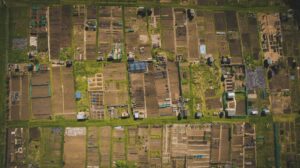Homes and commercial properties across Scotland are set to benefit from the establishment of a new £300m fund supporting the development and roll out of zero emission heat networks.
The fund will support projects where the heat for individual properties is supplied from a communal source.
These heat networks are common in other European countries, but there are fewer examples currently in Scotland.
The new fund takes over from the Low Carbon Infrastructure Transition Programme and is part of the overall £1.8bn committed over the course of the parliament to decarbonise heating.
Zero Carbon Buildings Minister Patrick Harvie announced the new Heat Network Fund at a visit to the Queens Quay heat pump and heat network project.
Mr Harvie said: ‘We have committed to reducing greenhouse gas emissions from our homes and buildings by more than two thirds by 2030. By the end of this decade, we aim to have switched over one million homes and the equivalent of 50,000 non-domestic buildings from fossil fuels to zero emission heating.
‘The Heat Network Fund will accelerate the development of heat networks across Scotland as we move towards our ambitious targets set by the Heat Networks (Scotland) Act 2021. The projects that receive support from the Fund will fully align with the Scottish Government’s aim to eradicate fuel poverty by supplying heat at affordable prices to consumers, which is especially important now when we are seeing record rises in the cost of heating.
‘We can’t reach these targets alone. We know how important increasing private and community investment will be alongside investment from the Scottish Government, that is why we have established the Green Heat Finance Taskforce. The Taskforce brings together leading voices and expertise from the building, finance and energy sectors and aims to identify and develop solutions to deliver the overall investment that’s needed to meet our vital goals for cutting emissions from homes and buildings.’
At the visit, he also announced the opening of applications for the Social Housing Net Zero Heat Development fund and the extension of funding for ‘Fabric First’ energy efficiency projects in social housing.
The development funding will be targeted at small and medium sized registered social landlords (RSLs) who have indicated they require additional support to plan and deliver the roll out of zero emissions heating within their housing stock.
Photo by Robert V. Ruggiero


















Leave a Reply